
- Shandong Loyal Industrial Co.,Ltd.
- SHORT-CUT PASTA PRODUCTION LINE LONG-CUT PASTA PRODUCTION LINE INSTANT PASTA PRODUCTION LINE
Home> Application> Future-Ready Spaghetti Suppliers: Full Automation for High Efficiency and Sustainable Operations

Future-Ready Spaghetti Suppliers: Full Automation for High Efficiency and Sustainable Operations
Future-Ready Spaghetti Suppliers: Full Automation for High Efficiency and Sustainable Operations
In the fast-paced realm of spaghetti production and supply, the concept of being "Future-Ready" hinges on the strategic adoption of full automation. This section explores the transformative impact of automating various facets of the supply chain, setting the stage for enhanced efficiency and sustainable operations.Shandong Loyal Industrial Co., Ltd. has incorporated advanced technologies from Tecalit and SARP in the production of its macaroni.
Efficiency and sustainability have become imperative factors in the competitive landscape of spaghetti pasta production line operations. This segment underscores the industry's trends, emphasizing the growing importance of streamlining processes and embracing sustainability practices for a resilient future.

Full Automation: Transforming Spaghetti Supply Chains
Full automation technologies encompass a spectrum of innovative solutions revolutionizing spaghetti supply chains. From automated pasta mixing and kneading to advanced shaping and packaging machinery, these technologies optimize each stage of production, ensuring precision and consistency.
The adoption of full automation brings about substantial efficiency gains in spaghetti supply chains. Real-time monitoring, precise ingredient proportioning, and automated shaping processes contribute to increased production output, meeting the demands of a growing market with unparalleled speed and accuracy.
Sustainability is a cornerstone of future-ready spaghetti suppliers. Through full automation, sustainable practices are seamlessly integrated, encompassing energy-efficient processes, reduced waste, and eco-friendly packaging solutions. Automation becomes a catalyst for responsible and environmentally conscious operations.
Navigating Challenges and Solutions
While the benefits of full automation are substantial, challenges may arise in the form of initial investment costs and the need for workforce adjustments. Industry leaders acknowledge these hurdles and strategize to navigate them effectively, ensuring a smooth transition to automated operations.
This section provides actionable solutions and best practices for spaghetti suppliers looking to overcome challenges associated with implementing full automation. Insights from industry experts and successful implementations serve as a guide for optimizing the transition process.

Case Studies: Exemplary Future-Ready Spaghetti Suppliers
Profiles of industry leaders, including Barilla, De Cecco, Creamette, San Giorgio, and Great Value, showcase how they have embraced full automation to become exemplary future-ready spaghetti suppliers. Their experiences highlight the tangible benefits and competitive advantages gained through automation.
Detailed analysis of performance metrics and success stories from spaghetti suppliers who have successfully implemented full automation. Quantifiable improvements in efficiency, sustainability, and overall operational excellence are presented as evidence of the transformative impact.
Looking Ahead: Emerging Trends and Innovations
Exploration of the latest technologies and innovations shaping the future of spaghetti supply chains. From artificial intelligence to predictive maintenance, this section provides insights into the evolving landscape of full automation.
A focus on sustainable innovations within the realm of spaghetti production and supply. The integration of eco-friendly practices, circular economy principles, and responsible sourcing emerges as a key trend shaping the future of the industry.
Conclusion
n summary, the exploration of "Future-Ready Spaghetti Suppliers" through full automation reveals a landscape where efficiency and sustainability converge for unprecedented operational excellence. Industry leaders, including Barilla, De Cecco, Creamette, San Giorgio, and Great Value, exemplify how embracing automation positions spaghetti suppliers for a resilient and innovative future.
The journey involves overcoming challenges, implementing best practices, and staying abreast of emerging trends. As the industry looks ahead, the integration of sustainable innovations and the continued evolution of full automation will shape the narrative for future-ready spaghetti suppliers.
In becoming future-ready, spaghetti suppliers not only meet the demands of the present but also contribute to a more sustainable and technologically advanced future in the world of spaghetti production.

FAQs: Frequently Asked Questions about Spaghetti Suppliers
1. What defines a "future-ready" spaghetti supplier?
A future-ready spaghetti supplier is one that strategically embraces full automation throughout its supply chain. This entails the integration of cutting-edge technologies to enhance efficiency, reduce environmental impact, and meet the demands of a rapidly evolving market.
2. How does full automation contribute to high efficiency in spaghetti supply chains?
Full automation optimizes various stages of spaghetti production, from mixing and shaping to packaging. The precision, speed, and scalability introduced by automation lead to increased production output and streamlined operations, ultimately enhancing efficiency.
3 .Is sustainability a priority in the context of full automation for spaghetti suppliers?
Absolutely. Full automation enables sustainable practices by incorporating energy-efficient processes, reducing waste, and adopting eco-friendly packaging solutions. Spaghetti suppliers embracing automation prioritize environmental responsibility, aligning with the global trend toward sustainable business practices.
4 .What challenges might spaghetti suppliers face in transitioning to full automation?
Challenges may include initial investment costs, workforce adjustments, and the need for comprehensive training. However, the long-term benefits in terms of efficiency gains and sustainability often outweigh these challenges. Successful navigation requires strategic planning and a commitment to embracing innovation.
5. How do industry leaders like Barilla, De Cecco, and Creamette set benchmarks through full automation?
These industry leaders set benchmarks by leveraging advanced technologies in their spaghetti production. From automated mixing and shaping to adopting sustainable packaging, they showcase the transformative impact of full automation in achieving operational excellence and meeting consumer demands.
Contact Us

- Shandong Loyal Industrial Co.,Ltd.
- Telephone+86 13176674591
- Email[email protected]
- WhatsApp+86 13176674591
- WeChat13176674591
- AddressC623, Jiahui Global Plaza, No. 548, Beiyuan Street, Tianqiao District, Jinan City, Shandong Province
- Factory AddressADD -300m North of Zhangxia Industrial Park, Binhe Road, Zhangxia Town, Changqing District, Jinan
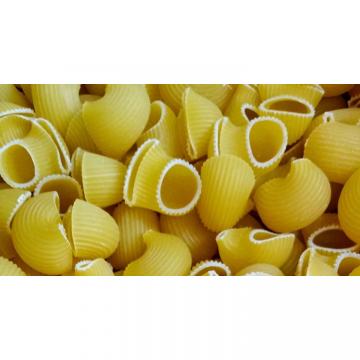



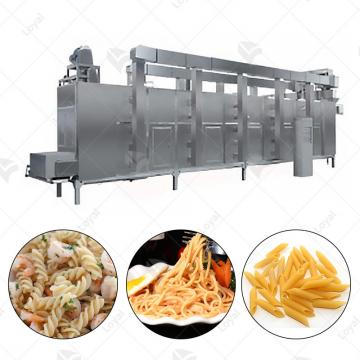
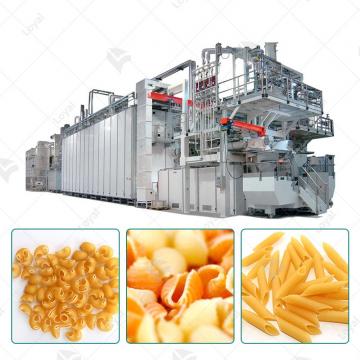 VACUUM PASTA EXTRUDER
VACUUM PASTA EXTRUDER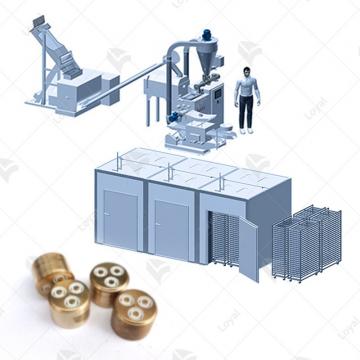 Combined Pasta Production Line
Combined Pasta Production Line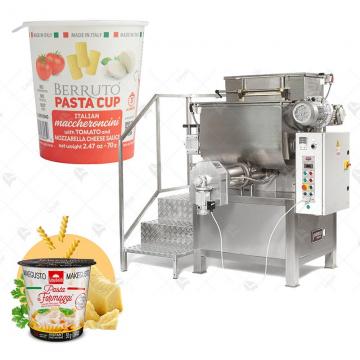 INSTANT PASTA CUP PRODUCTION LINE
INSTANT PASTA CUP PRODUCTION LINE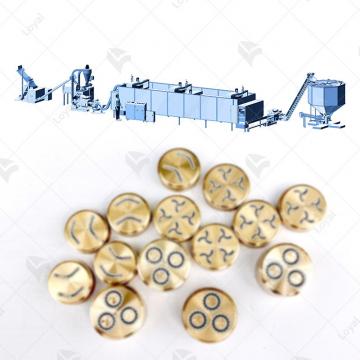 Pasta Processing Equipment
Pasta Processing Equipment